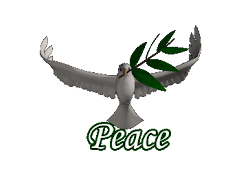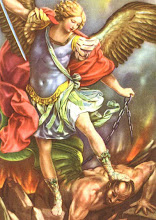Yom Ha-Zikaron
by Avi Hein
Since the establishment of the State of Israel, four new holidays have been added to the Jewish national calendar – Yom HaShoah v' HaGevurah (Holocaust Heroes and Martyrs' Day), Yom Ha-Zikaron (Memorial Day), Yom Ha-Aatzmaut (Independence Day), and Yom Yerushalayim (Jerusalem Day). In Israel, these holidays are widely observed as national holidays, but outside of Israel they claim varying degrees of prominence and commemoration.
The Israeli Knesset established the fourth of Iyar, the day preceding Yom Ha-Atzmaut, as a Memorial Day for soldiers who lost their lives in battle for the creation of the State of Israel and all those soldiers who died subsequently defending the State of Israel.
Perhaps because much of the Israeli population has relatives or close friends who have died defending Israel, Yom Ha-Zikaron is widely observed throughout all sectors of Israel, with the exception of most Arabs (Druze and Beduoin, many of whom have served in the Israeli military, being a notable exception) and non-Zionist haredi Jews. Throughout the entire day (beginning at sunset, per the Jewish lunar calendar) places of entertainment are closed by law. Unlike in America, in which Memorial Day is often used simply as an excuse for another sale, Israeli shops, restaurants, movie theaters, etc. are shut down. The radio and television stations play programs about Israel's wars and show programming that convey the somber mood of the day.
Perhaps the most widely recognized commemoration, as on Yom HaShoah, an air raid siren is played twice during Yom Ha-Zikaron. All activity, including traffic, immediately ceases. People get out of their cars, even in the middle of otherwise busy highways, and stand in respect for the sacrifice of those who died defending Israel. The first siren marks the beginning of Memorial Day and the second is sounded immediately prior to the public recitation of prayers in military cemeteries.
Numerous public ceremonies are held throughout Israel. Special readings and poems are often recited. There is a national ceremony at the military cemetery on Mt. Herzl, where many of Israel's leaders and soldiers are buried. Many schools and public buildings have memorial corners with memorials to those from their community who died in Israel's wars.
While mostly viewed in a secular national character, there is also a religious component to Yom Ha-Zikaron. There is a special yizkor (rememberance) prayer and "El Maleh Rachamim" memorial prayer for members of the Israeli Defense Forces who died in the line of duty, which is read at many of the Yom Ha-Zikaron ceremonies. Some members of the religious Zionist (national religious) community has also added special prayers to the prayer service for the evening prayers on Yom Ha-Zikaron. The mourners kaddish is often said. The development of Yom Ha-Zikaron as a religious holiday is still developing.
Since the second intifada, many have extended Yom Ha-Zikaron to remember not only soldiers who died defending Israel but also security guards through their daily guarding of public buildings, restaurants, and cafes they have given their life to save the lives of those inside due to terrorist attacks.
In tune with the Jewish tradition of recognizing joy in times of sadness and sadness in times of joy, Yom Ha-Zikaron's somber end heralds the beginning of the joyous and festive Yom Ha-Atzmaut, Independence Day.
Outside of Israel, Yom Ha-Zikaron is not widely observed, except perhaps for a short commemoration that is held prior to evening observances of Yom Ha-Atzmaut.
--------------------------------------------------------------------------------
Source: "Overview: Yom Ha-Zikaron," MyJewishLearning.com, Ministry of Foreign Affairs, World Union of Jewish Students - Yom Ha-Zikaron
http://www.jewishvirtuallibrary.org/jsource/Judaism/yomhazikaron.html
LORD YESHUA HA' MASHIACH ARTICLES AND ARTICLES ABOUT MESSIANIC JEWS JEWS FOR JESUS AND JEWISH CHRISTIANS THE HEBREW CHRISTIANS.
lunedì 27 aprile 2009
Iscriviti a:
Commenti sul post (Atom)



















Nessun commento:
Posta un commento